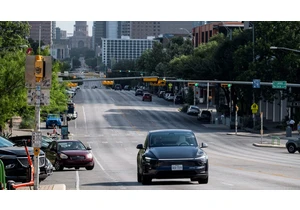The Labor Department unveiled a proposal on Tuesday that would impose additional barriers on companies trying to claim workers as independent contractors rather than employees, which some believe could overhaul the business models of rideshare and delivery giants.
The new rule would essentially take the form of a test, which would weigh how much control a worker has over their job as well as the permanency of their role. Workers who may have less control, for example, would likely be viewed as employees.
If passed, the Labor Department’s initiative would signal a huge victory for worker advocates, who have long lobbied for better protections and benefits. It would also come as a major blow to companies that rely on gig work, who argue that workers prefer flexible models.
Classifying workers as contractors has allowed companies to avoid costly benefits such as paying overtime and minimum wage. Investors have long believed gig companies’ path to profitability would be more difficult in the face of increased regulation. Little surprise, then, that shares of Uber, Lyft and Doordash all dropped upon news of the proposal.
“In a time of deep economic uncertainty, it’s crucial that the Biden administration continues to hear from the more than 50 million people who have found an earning opportunity with companies like ours. We look forward to continued and constructive dialogue with the Administration and Secretary Walsh as this process progresses,” Uber’s Head of Federal Affairs CR Wooters tells Fast Company in a statement.
The proposal will be published formally on Thursday, leading to a 45-day public comment period. It would then take several months for it to be finalized, meaning the items within the proposal could widely change.
In a blog post, Lyft says “there is no immediate or direct impact on its business” at the moment. The company denied that the rule will make Lyft reclassify its drivers as employees or change its business model. “Any new rule that addresses independent contractor status should be informed by those it impacts most: the workers. App-based work, in particular, is fundamentally different from traditional 9-to-5 work. Nowhere else can you find the same minute-by-minute flexibility to decide when, where, and for how long you want to earn,” the company writes.
The measure by the Biden administration appears to have been a long time coming. Last April, Walsh told Reuters in an interview that gig workers should be classified as employees. We are looking at it but in a lot of cases gig workers should be classified as employees … in some cases they are treated respectfully and in some cases they are not and I think it has to be consistent across the board,” Walsh said. “These companies are making profits and revenue and I’m not (going to) begrudge anyone for that because that’s what we are about in America,” he added, “but we also want to make sure that success trickles down to the worker.”
Melden Sie sich an, um einen Kommentar hinzuzufügen
Andere Beiträge in dieser Gruppe

As Zohran Mamdani declared victory in the New York C

A first public test of robotaxis by Tesla in Austin, Texas led to multiple traffic problems and dri

As you scroll through your FYP, a sweet elderly man or woman appears, asking for a moment of your attention to help save their struggling animal shelter.
“Please stay 8 seconds so I don’


Stephen Miller, the hard-line Trump adviser who helped craft some of the administration’s most aggressive immigration enforcement policies, is apparently profiting from the tools that make them po

Robotaxis are crashing into the rideshare market.
Drivers for apps like Uber and Lyft are growing worried about autonomous vehicles. Waymo has already deployed their vehicles acros

